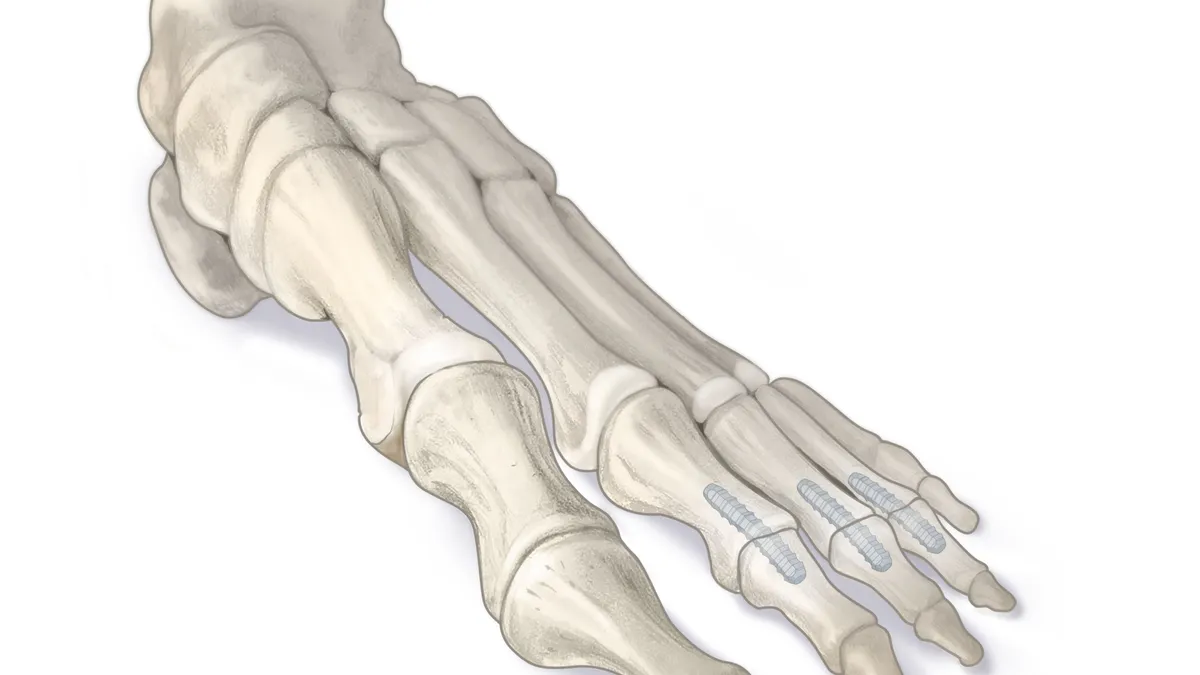Dive Brief:
-
Wright Medical Group suffered what analysts called a one-two punch in the second quarter as disinterest of Cartiva distributors and poaching of sales staff by competitors dragged on performance, the company in results on Wednesday.
-
Investors went into the quarter fearing doubts about the effectiveness of Cartiva, a synthetic cartilage treatment for arthritic toes, would cause a slowdown. Cartiva sales did fall but not for the expected reason.
-
Wright Medical has moved to address the problems but said it will take time to recover, leading it to lower the midpoint of its guidance range by $32.5 million.
Dive Insight:
A report by RBC Capital Markets shook Wright Medical last month. The report, which was based on checks with a dozen foot and ankle specialists, claimed surgeons were turning away from the Cartiva device Wright Medical acquired in a $435 million takeover last year. Analysts attributed the trend to problems including post-operative pain.
Wright Medical's second quarter results enabled management to hit back against the report. Sales of Cartiva in areas covered by a direct sales force were up 29%, lending weight to Wright Medical's dismissal of the negative analyst commentary.
"Nothing mentioned in this commentary was new to us, nor do we think anything differently now. This was all known at the time of the deal, was considered in our deal model and has no impact on current year constant currency organic growth rates," Wright Medical CEO Robert Palmisano told investors on the second quarter results conference call.
The problem for Wright Medical is multiple other things went wrong in the quarter. Overall, sales of Cartiva came in below analyst expectations as a result of the cratering of revenue from territories covered by distributors.
Palmisano attributed the trend to distributors actively trying to move customers away from Cartiva in the belief that Wright Medical would stop selling to them in the future. According to Palmisano, Wright Medical planned to continue working with the distributors for as long as they performed but, faced with the trend, he took action.
"How we dealt with the distributor issue is that we fired them all, quite frankly," Palmisano said. Wright Medical has one distributor left but will otherwise rely on its direct sales force, which grew 29% in size in the quarter.
The Cartiva problems were compounded by difficulties at the U.S. core foot business. Wright Medical competes for the market with a patchwork of small, privately owned companies that, as Palmisano sees it, seek to gain advantages through "aggressive acquisition of design surgeons, surgeon investors and competitive sales reps."
In mid-May, two of Wright Medical's competitors poached seven or eight of its sales reps in 48 hours. Wright Medical suffered a high turnover of sales reps after its Tornier acquisition but analysts think the problem is less severe this time.
"While disruption in the lower extremity sales force is sure to bring flashbacks from the post-Tornier period, the current dynamic was described as orders of magnitude smaller. Many territories have already been back-filled with experienced reps and while we appreciate that how quickly they can ramp will be a question, we don't expect the impact to be as deep or protracted as before," analysts at Jefferies wrote in a note to investors.
In the long term, Wright Medical hopes to win market share by differentiating its products. Until that happens, Palmisano thinks the company is in a "knife fight" with its smaller competitors that will be won and lost based on the size and motivation of its sales force.
"We will be bringing more knife fighters to the knife fight and having more motivated knife fighters in the knife fight," Palmisano said.
Investors slashed Wright Medical shares by more than 20% Thursday morning.











